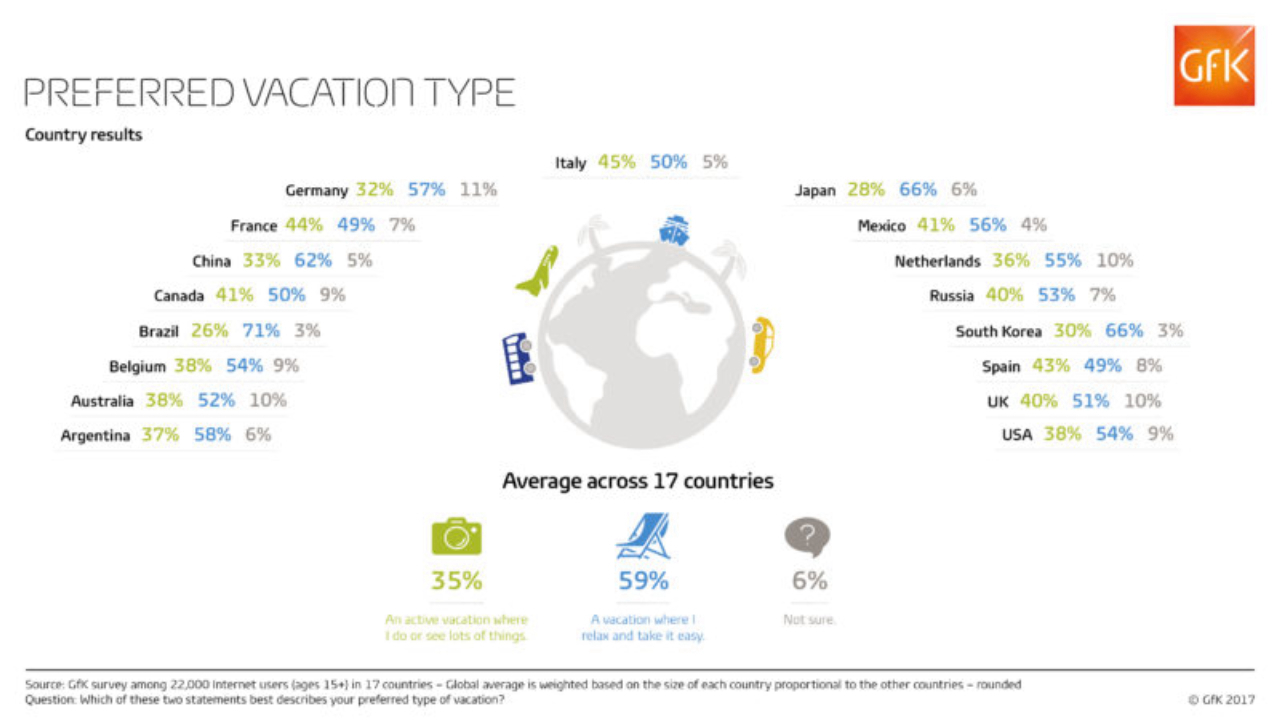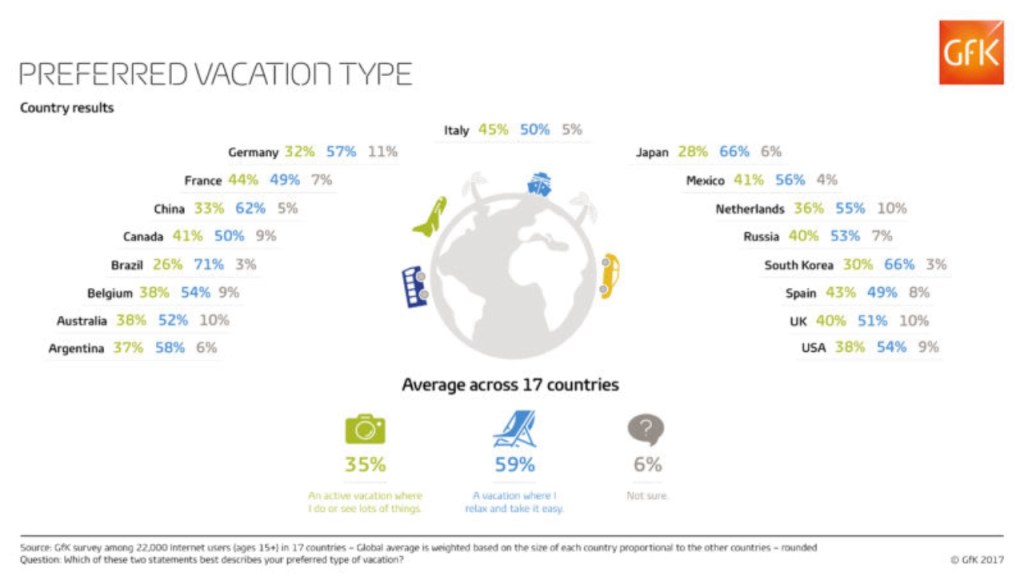When it comes to taking a vacation, more than half of people (59%) surveyed internationally prefer a vacation where they “relax and take it easy”, according to our online study conducted in 17 different countries.
In comparison, over a third (35%) said that they prefer “an active vacation where I do or see lots of things”. Six percent of the respondents were not sure which type of vacation they prefer.
Breaking down the results by the biggest factor: Age
When analyzing the results of the study, there was next to no difference between the preferences of men and women.
Age played a bit of a role, with teenagers being the most likely to be inclined to energetic vacations (43% prefer a vacation that is active vs. 51% who prefer to relax). In addition, families with teenagers in the household are slightly more inclined to active holidays than others.
This preference for energetic vacations then drops steadily with each age group, with those in their fifties and those aged sixty-plus both standing at one third who prefer an active vacation.
Respondents aged in their forties had the highest percentage of people who prefer relaxing holidays, at nearly two thirds (64%). In comparison, only 57% of people aged 60 and over say they favor a relaxing vacation.
Preferred vacation type by country
The results differed from country to country, with Italy (45%), France (44%) and Spain (43%) leading in percentage of their online population who prefer active vacations where they do and see lots of things.
The countries that lead for having the highest percentages of people who prefer a relaxing vacation where they take it easy are Brazil (71%), South Korea (66%) and Japan (also 66%).

“The value of these findings for the travel industry lies in combining this self-reported data with our travel insights, which are based on live forward booking data from a growing number of sales points,” comments Laurence Michael, global lead of travel and hospitality research. “With this multi-layered approach, we understand what is being booked and by whom – helping our clients to fine-tune their audience segmentation and identify customer potential, both globally and at country-specific level.”
Whether travelers prefer relaxing or planning a more adventurous trip, it should be clear to brands that building on experiences can help leverage consumers’ current travel sentiments. By utilizing emerging technologies in the travel space, travel brands have the opportunity to build customer loyalty by appealing to the individual consumer.
About the study
GfK conducted the online survey with over 22,000 consumers aged 15 or older across 17 countries. Fieldwork was completed in summer 2016. Data are weighted to reflect the demographic composition of the online population aged 15+ in each market. The global average given in this release is weighted based on the size of each country proportional to the other countries. Countries covered are Argentina, Australia, Belgium, Brazil, Canada, China, France, Germany, Italy, Japan, Mexico, Netherlands, Russia, South Korea, Spain, UK and USA.




